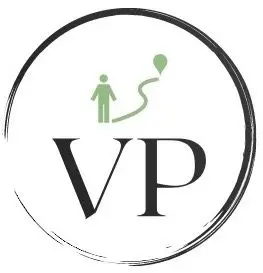Towards the end of World War 2, we saw where Stalin, Churchill, and Rosevelt divided the Eastern European countries and territories. Long story short, their decisions resulted in many of the countries ending up in Soviet Communist control for the decades to follow.
 Looking back at the Yalta conference where this decision was made there is a picture that defines the proceedings of their decisions. In the photo, all three world leaders had their aides behind them. Both Churchill and Rosevelt showed their distraction by their posture as if they had other things on their mind. See, both Churchill and Roosevelt would both leave office within months the Yalta conference. Churchill would be voted out as Prime Minister in the summer of that year, while Roosevelt would die two months later.
Looking back at the Yalta conference where this decision was made there is a picture that defines the proceedings of their decisions. In the photo, all three world leaders had their aides behind them. Both Churchill and Rosevelt showed their distraction by their posture as if they had other things on their mind. See, both Churchill and Roosevelt would both leave office within months the Yalta conference. Churchill would be voted out as Prime Minister in the summer of that year, while Roosevelt would die two months later.
Stalin, however, looked intently into the camera taking their picture. It was a gaze both he and his aid held together. A gaze that almost communicated that they knew what they were doing. Stalin would outlast both Roosevelt and Churchill. Stalin made a decision that impacted the Soviet Union’s focus when they took control of Eastern Europe. With their focus one has to ask, how did the distractions of either Churchill and Roosevelt affect so many they’d never know?
To be fair, we have to ask ourselves that very question today. How does our well-being or focus impact the lives of others?
Recently a workplace I know about is going through a lot of turmoil. Routinely they often dismiss people. It’s unhealthy at times, and many question the long-term focus of the organization.
This culture makes it for emotion to run high where people make rash resignations. The problem with such reactions is that like Yalta; we must remember others when we make our choices. In the short term, the decision may feel good, but long term the decision may be wrong. As a result; the ultimate question becomes, “when am I making a decision from health than hurt?”
Here are some thoughts:
1. Give it time – Time, space, and distance is best when possible. Like Yalta, some circumstances are not ideal. Time then gives us the perspective we need.
2. Seek the Positive – It’s easy to find the negative in anything. There are all kinds of studies to prove this point, but we know this truth by our responses to life. As a result, we need to seek the positive in things. Doing so will show us that our circumstances are not as bad as we think. This perspective will keep us encouraged while we assess things long term.
3. Survey the Overall Situation – There is nothing like a pro versus con list. Again, we must seek the positive to gain perspective, which begins with the right facts that the properly inform our emotions. It is only when the negatives outweigh the positives that a change must occur.
4. Remain Open to Being Wrong – We may be wrong from time-to-time. Few of us want to admit this possibility, but our emotions can lead us to wrong conclusions. Again, this is why having the correct facts is so important. Real facts then help us make emotionally accurate conclusions. Facts also help us avoid leaning towards our biases and preferences.
5. Endure – It’s possible to adjust our decisions when we discover new facts. When we endure, we then allow ourselves the chance to learn all the needed information than rushing to a quick resolution. Also, enduring makes it possible to enact a decision at the best possible time. Timing is everything, and we may have to wait a few days, weeks, or even months, but when we endure until the right time, then our patience will see rewards.
 In closing, both step one and five revolve around one idea: time. No matter the decision time is a focus no one can escape. As the Yalta conference points out, our decisions impact more than just us, they affect others for generations to come. We, therefore, should take the time needed to focus well. If we can’t take enough time then like Churchill, Roosevelt, and Stalin, let’s remember the advisors we have around us. They know our abilities and will help us make the best possible choices for not just us, but others; decisions that could make or break another person’s day or even their life.
In closing, both step one and five revolve around one idea: time. No matter the decision time is a focus no one can escape. As the Yalta conference points out, our decisions impact more than just us, they affect others for generations to come. We, therefore, should take the time needed to focus well. If we can’t take enough time then like Churchill, Roosevelt, and Stalin, let’s remember the advisors we have around us. They know our abilities and will help us make the best possible choices for not just us, but others; decisions that could make or break another person’s day or even their life.



